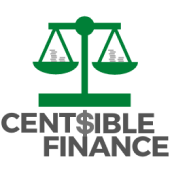
There are only two weeks left to file your taxes for 2020. So, if you haven’t already, you still have a little time to do so. The IRS has a few options you can use to file for free. But if you need to file an extension, you can get started on that right here. And don’t forget about what we went over recently. We talked about itemizing vs. the standard deduction; how you may be able to write off qualified medical expenses; and even how the updated W-4 could help you. If you missed either letter, you can take a look at those here and here. But all this talk about taxes and income got me thinking about the accounts out there that many of us overlook. Now, one of them could also help you out when tax season comes back around next year. And the other could help you out over the long term, in general. I overlooked these, too… until I saw how much they helped me.
The Health Savings Account
I first heard about the health savings account (HSA) a few years ago, during my first day at a company I used to work for. What I understood was that my employer would contribute some money to my HSA once a year, if I enrolled in a high-deductible health plan (HDHP). At the time, I thought to myself: That’s pretty cool. I can use that toward any doctor visits or when I go for my annual eye exam. But I was missing out on the bigger picture… Fast-forward to last December. I still had an HSA. But I wasn’t really interested in putting any money into it. I ended up having to take the day off from work to go to the ENT (the ear, nose, and throat doctor). Long story short, after insurance, I paid $200+ that day for prescription medications… Two months later, the ENT’s bill came. It was $700. I didn’t see $900 of medical bills coming at all. Now, if I had been regularly contributing to my HSA well before this moment, I wouldn’t have even batted an eye. Because here’s the thing: Let’s say I decided to take $38 from each paycheck and put it into my HSA. In a year, I would’ve had more than $900 in the account—enough to cover the ENT bill and costs for the medicine. That also means it wouldn’t have messed up my budget. Another thing I was also missing out on was the tax benefit. When you contribute to an HSA, you lower your taxable income, too. So, if your gross income (before taxes) for the year is $35,000, but you contribute $1,000 to your HSA, your taxable income would be $34,000. Something like this could be a huge benefit to some of us. You’re allowed to contribute up to $3,600 as an individual, and up to $7,200 as a family. HSAs that also allow you to invest through the account grow without being taxed. Yes, without being taxed. So, if you invested $1,000 over a year—or however many years—and it grows to $1,400… the $400 return on your investment is tax free. So, if you have an HDHP through your employer, see if you can take advantage of the HSA. If you don’t have an employer that offers this, you can also look into opening your own.
The Roth 401(k)
You may already know about the Roth IRA, which stands for individual retirement arrangement (or more commonly, individual retirement account). You can contribute to a Roth IRA after taxes. And you won’t pay taxes when it’s time to withdraw from your account come retirement. Now, a Roth 401(k) is very similar, except it’s through your employer. Again, when I found out about the Roth 401(k), I didn’t see the bigger picture. Since I knew a regular 401(k) would use my before-tax dollars and lower my taxable income, I thought it was the best way to go. But that’s not always the case. See, with a regular 401(k), yeah, your taxable income is lowered, but when it’s time to reach into those funds come retirement, you have to pay taxes. And the taxes you pay all depend on how much you were making while you were contributing to your retirement account over the years. Don’t get me wrong. I’m not saying it’s a bad thing. And I’m not sharing this with you so you can find ways to avoid paying taxes. What I’m saying is, although the 401(k) may be good for you, the Roth 401(k) may be better. It really depends on your specific situation, since everyone’s is different. But generally speaking, if you know you’re probably going to be making more money in the future, five to 10 years down the line, for instance, you may be better off investing in a Roth 401(k), if your employer offers one. And if you will likely get paid the same over the years, then a regular 401(k) may be the better option. So, it may be worth your while to at least see if your employer offers a Roth 401(k). You won’t be able to write it off on your taxes and you can only contribute to it with after-tax dollars. But in the long run, it could pay off for you. The rule of thumb is to contribute 15% of your gross pay to your retirement. So, if you make $35,000/year, that’s $5,250 toward retirement every year, or around $200+ each time you get paid. You can talk to a financial advisor for guidance. Especially if you don’t know whether you should go with a Roth 401(k) or a regular 401(k). You can use sites, such as SmartVestor Pro, to find one in your area. Kingdom Advisors is another one you can use, if you’d like to find someone who advises based on biblical principles. An advisor has a securities license and is able to recommend what you can (and should) invest in. So, if you’re ready to start investing in your future and you want to be hands on with your investments, an advisor would be the best person to speak with.
Are You Ready?
How do you know you’re ready? Well, you’re ready when you are out of debt and have enough savings to get you through difficult times. If you’re not there yet, it’s okay. Focus on where you are right now. If you stay focused, you’ll get to where you need to be. If you need help focusing… if you need some encouragement… if you need help figuring out where you’re at… if you need help seeing the bigger picture… that’s where a financial coach can help. A coach is someone who will guide and motivate you through your personal finances and help you prioritize your goals (getting out of debt, saving to buy a home, budgeting, etc.). One of the best things about living life is knowing that we don’t have to live it alone. There are people in our lives who are willing to encourage us and hold our hand during the good times and the bad. You just have to let them. So, if you need help, you know just how to reach me.
With gratitude,

Melody C. Kerr, MS
Writer, Editor, Financial Coach

